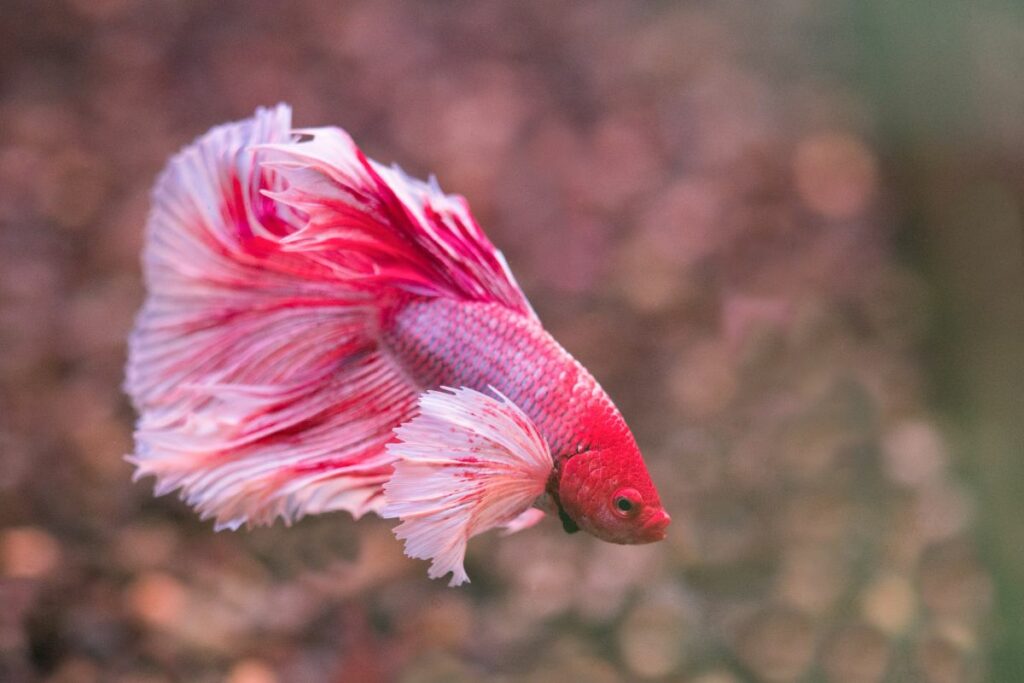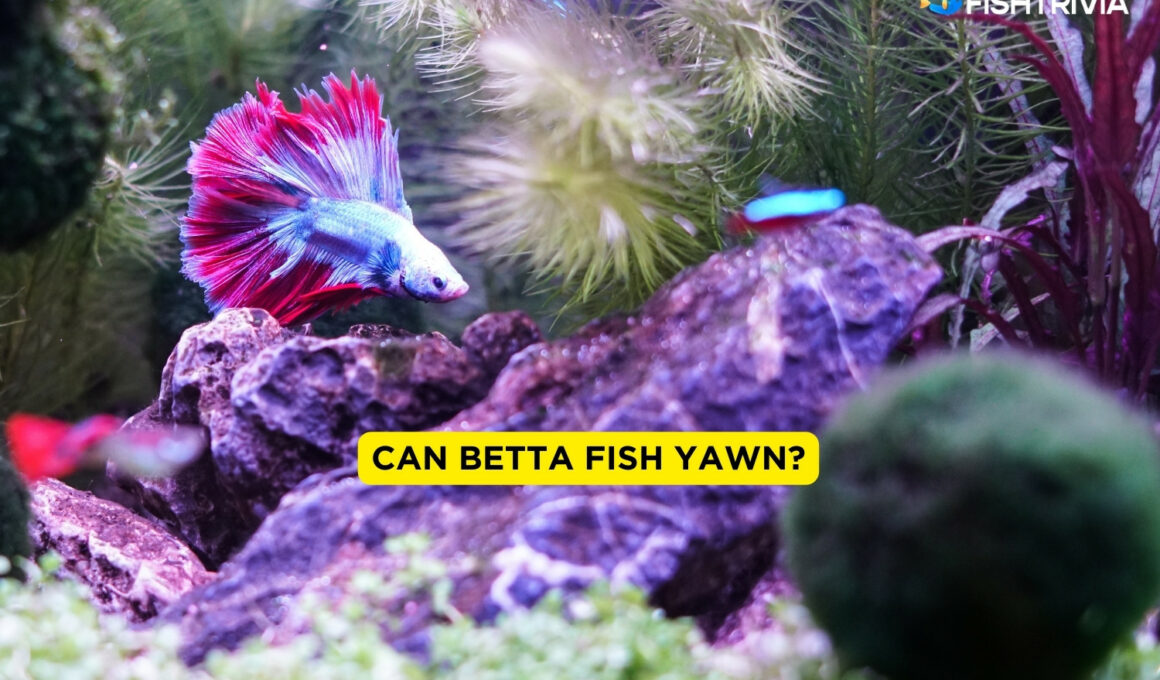In this article Show
As an experienced fishkeeper, I’ve observed a range of behaviors in these captivating creatures, which often leads to intriguing questions. Today, we’re focusing on a particularly curious aspect: can Betta fish yawn?
This might seem like a simple query, but it opens up a broader discussion about the behavior and well-being of these popular aquatic pets. Understanding Betta fish, including what their actions signify, is crucial for providing them with the best care.
So, let’s embark on this journey together to uncover whether these beautiful fish really do yawn and what it tells us about their world.
Can Betta Fish Yawn?
Yes, Betta fish can yawn, though it’s not quite the same as human yawning. In the aquatic realm, Betta fish display a yawning-like behavior, which is more accurately a mouth-gaping action. This behavior is often linked to their respiratory needs, allowing them to regulate oxygen intake or clear their gills.
Observing Betta Fish Behavior
Betta fish, also known as Siamese fighting fish, are renowned for their vibrant colors and dynamic personalities, making them a favorite among aquarium enthusiasts. Observing their behavior is not only fascinating but also vital for ensuring their well-being.
Let’s explore some of the common behaviors and how to distinguish between normal activities and signs of stress in these captivating creatures.
Common Behaviors of Betta Fish
- Flaring: Betta fish flare their gills to appear more intimidating. This is normal, especially when they encounter their reflection or another Betta.
- Swimming Patterns: Healthy Betta fish are active swimmers, often gliding smoothly through the water. They enjoy exploring their environment, which includes swimming to the surface for air.
- Nesting: Male Bettas build bubble nests at the water surface, a sign of good health and readiness to breed.
- Feeding Behavior: Bettas show eagerness during feeding times, quickly approaching food at the water’s surface.

Signs of Stress in Betta Fish
- Lethargy: If a Betta is consistently lying at the bottom of the tank or shows little interest in its surroundings, it could be a sign of stress or illness.
- Loss of Appetite: A sudden lack of interest in food is another red flag.
- Faded Colors: While Betta fish naturally change colors, a drastic or sudden fading can indicate stress.
- Clamped Fins: Fins that are held close to the body rather than spread out are a sign of discomfort.
- Erratic Swimming: Darting around the tank or rubbing against objects can indicate stress or the presence of parasites.
Interpreting Betta Fish Yawns
When it comes to Betta fish, what appears as a yawn can be a subject of intrigue for fish enthusiasts. Understanding what this behavior signifies and how it differs from other mouth movements is key to ensuring the well-being of these vibrant aquatic pets.
What a Yawn Could Mean in Betta Fish
- Respiratory Adjustment: A Betta’s ‘yawn’ might be a way to regulate its intake of oxygen. Since Bettas can breathe atmospheric air, this gaping action could help them adjust their respiratory system.
- Gill Cleaning: It could also be a method for clearing debris from their gills. In their natural habitat, Bettas occasionally need to expel irritants, and a yawn-like action facilitates this.
- Stress or Discomfort: While less common, yawning can be a response to discomfort or stress, possibly due to water conditions or lack of stimulation.
Differences Between Yawning and Other Mouth Movements in Betta Fish
- Duration and Frequency: A true yawn is generally a singular, deliberate action, noticeably different from continuous mouth movements like gasping, which could indicate distress.
- Context of the Behavior: Observing the context in which the yawning occurs is crucial. For instance, continuous opening and closing of the mouth while swimming aggressively or during feeding differs from the occasional yawn.
- Accompanying Behaviors: Other behaviors like flaring gills, swimming patterns, and overall activity levels should be noted. If a ‘yawn’ is accompanied by lethargy or erratic swimming, it might be a sign of underlying issues.
- Appearance of the Fish: Checking the fish’s coloration and fin condition can also provide clues. Healthy, vibrant colors and spread fins during a yawn-like action suggest normal behavior.
Interpreting these behaviors in Betta fish, particularly distinguishing yawning from other actions, plays a crucial role in understanding their health and environmental needs. Regular observation and knowledge about these nuances help in creating a nurturing habitat for these beautiful fish.










